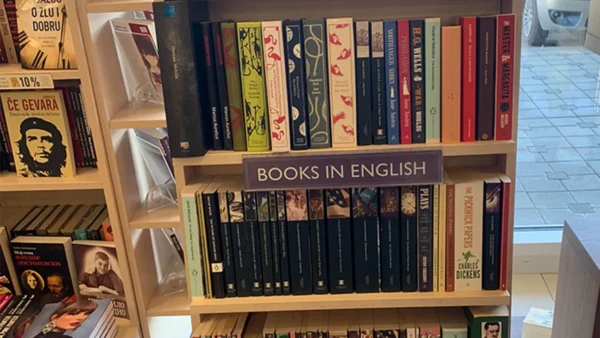I used to treat books like sacred relics. I would read them carefully, never making notes in the margin or dog-earing the pages. These days, I’m more tolerant. The physical condition of a book means something else to me: well-preserved books tend to be the ones I haven’t read much, whereas battered ones show me the importance they’ve held in my life.
Perhaps my most battered book of all is What is History? by E.H. Carr. This is not entirely my doing – I acquired the book from my school library, and the form in the front shows generations of schoolboys borrowing it, all the way back to “Skinner, September 1970”. The first few lines record its steadily deteriorating condition, but this petered out around 1978.
I think its condition was so bad that they told me I could keep it – or perhaps I stole it in a juvenile attempt at revenge. I can’t quite remember. In any case, I took it to university, and this is where the cover became detached and even the sellotape holding it together got eroded.
This book, you see, is a history undergraduate’s dream. It has a quote for every occasion, a whole raft of pithy observations on the nature of history that you really need at 3am when you’ve drunk so much whisky and coffee that you’re not sure which subject you’re meant to be studying.
I recently reread it one last time before it falls apart completely. The essential arguments are not as controversial as they were in 1961, but I’ve never seen such a lucid summary of issues on the study of history, so thought it would be worth a recap, especially given the nonsense I still sometimes hear about objectivity.
First of all, there is of course no such thing as objectivity. Carr shows this by studying what is meant by a historical fact. We think this is simple, but it isn’t. There are millions of facts about the past. At the same time as Hitler was invading Poland, my grandfather was mowing his lawn. The historian doesn’t record all the facts; she selects on the basis of significance.
But how is significance determined? First of all, it’s determined by important people at the time, who deemed Hitler’s invasion of Poland significant, while my grandfather’s lawn-mowing went unrecorded. Secondly it’s determined by the historian, who cannot divorce himself from his own preoccupations. Even the language he uses, words like democracy and empire, have a present-day resonance he cannot ignore. Indeed, history would be pointless unless it served some purpose in helping us understand the present. We try to learn the lessons of history, but our definition of those lessons is inevitably conditioned by what we want to learn. History, Carr argues, is “a continuous process of interaction between the historian and his facts, an unending dialogue between the present and the past.” (Yes, I used that one a few times.)
Historians don’t even deal in facts for the most part. They deal in causes. “The great historian – or perhaps I should say more broadly, the great thinker – is the man who asks the question ‘Why?’ about new things or in new contexts.” Only the most simplistic school textbook would simply record that Hitler invaded Poland in 1939; the true historian does not linger long on such a fact before examining the causes.
Carr successfully demolishes the binary opposition of “determinism in history” versus “chance in history”, showing that causation in human affairs is complex and not reducible to a choice of “inevitable” or “accidental”. He loses me, though, when he distinguishes between “rational” and “accidental” causes, saying that historians focus on causes that lead to fruitful generalisations to other countries and periods, rather than one-off accidents like Lenin’s premature death or Alexander’s monkey-bite. To me, those events are as important a part of history as the “rational” causes, whether or not they have broader lessons to impart.
In the chapter “History as Progress”, Carr cleverly charts the changes in the concept of progress over time, and shows how at moments of optimism and success, historians believe in progress, while at moments of bleakness they lose this belief. In the late nineteenth century, the British Empire was at its zenith, but in 1961, when he wrote this book, it was in decline. Now, it’s tough to find anybody who subscribes to the idea of progress.
Overall this is a really good read for anyone interested in the process of writing history. Although it’s a 50-year-old book it is still very relevant, and still eminently quotable 😉





There are 9 comments
If there are still copies of this around I’d love to get one. As a fellow lover of history and how it’s studied I’ve been nodding my head like crazy over this post (I probably love history a bit too much). You study the whys when you first start, but it’s always only going to be an overview and having a book all about it sounds brilliant.Objectivity is good but yes, there is only ever so far you can be, and you’re always going to select the evidence that backs you up.
Hi Charlie
Yes, I think there should still be copies available – my edition is ancient, but I’m sure there are newer ones. It’s good to find a fellow history-lover. I think we can learn so much from studying the past, but it’s important to recognise our own biases and to be aware that we’re not collecting facts so much as telling ourselves stories.
I really, really should read this as the subjects are of interest to me. The entire determinism thing I think is still and may always be an open question. I totally agree about objectivity being illusionary. I think that while that concept is now generally accepted, it is difficult for many to keep in mind.
I hope you do – it’s a good read. Very straightforward and easy to read, but covering some really interesting ground. I think you’re right – people know now that objectivity is an illusion, but it’s still very ingrained in the way we think.
It was wonderful to read your thoughts on Carr’s book, Andrew! This book has been there in our home as long as I can remember because my father taught history in school and he had a collection of history books and this was part of that. I read it only a few years back, though. It is a wonderful book and an excellent introduction to history. That sentence you have quoted, about history being a continuous process of interaction between the historian and his facts, is one of my favourites too. I also loved your observation about objective facts. The book is leaping at me from the bookshelf now and I am so tempted to read it again. Thanks a lot for this review and for making me feel nostalgic 🙂 And I have to say that I am so jealous of you for having studied history in university 🙂 By the way, did you post a review of Norman Davies’ ‘Europe’?
Hi Vishy
That’s wonderful to hear about your father. I remember that you love history, but I didn’t know he was a history teacher. Yes, read it, read it 🙂
Oh, I never did post a review of ‘Europe’, did I? I read it in the last few days of being in London before moving to Barbados (it was too heavy to take with me!!). That was such a busy time for me that I didn’t have time to review it, and by the time I’d got settled in Barbados it already seemed distant. I really enjoyed it, though, and appreciated the even-handed look at European history, which is so often skewed towards Western Europe.
I saw the title of this post Andrew and hoped it was about this book. I love it. I read it in University in the 1970s and have never forgotten it because it made SUCH sense. As you say, objectivity is impossible, and facts are either suspect or misleading or not very useful, usually because as you say (Carr says) they are not the only story, not the full story. I love, for example, the expansion in the last couple of decades of social history, of the study of women’s history, all things I didn’t learn in highschool or university but the stuff of our lives.
My EH Carr has the same cover and is annotated and thumbed but has had only one owner so is in somewhat better condition than yours. I wonder where Skinner is now?
Ah, you have the same edition! That’s great to hear. Yes, I’m sure you’ve been more careful with yours than Skinner & Co were with mine.
It’s a wonderful book, isn’t it? And you’re right about the ways in which history has changed to take account of other perspectives and to be more close to ordinary lived experience rather than charting the lives of “great men”. Carr couldn’t have anticipated the developments, but he did anticipate that some developments like that would take place – he was very clear that history reflected the age it was written in, and was always changing to accommodate the values and priorities of the historians and the society they live in.
Thanks for the comment! Great to know we share a love for such an old but valuable book.
greetttttttttttttttttttttttt